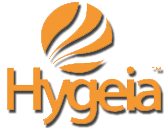Amidst the excitement and anticipation of your pregnancy, you are more than likely to encounter a sea of well-meaning advice and information, not all of which is accurate. This is especially true when it comes to breastfeeding. Breastfeeding is a beautiful and natural way to nourish your baby, providing them with essential nutrients and antibodies for a healthy start. However, the benefits and naturalness of breastfeeding lead to some tall tales about its powers and ease. These tall tales are often referred to as “breastfeeding myths.”
Let’s bust some common breastfeeding myths and empower you to navigate your breastfeeding journey with confidence:
Myth 1: Breastfeeding is easy and natural.
While breastfeeding is a natural instinct, it doesn’t always come easily. Learning proper latching, establishing a routine, and managing potential challenges can take time and practice for both you and your baby. Don’t be discouraged if it takes a few tries – seek support from lactation consultants, nurses, or experienced mothers to overcome initial hurdles. You can schedule an appointment with a lactation consultant here.
Myth 2: Sore nipples are inevitable.
While some initial discomfort is common, especially in the first few days, ongoing pain is not normal. Ensure your baby is latching correctly, as a poor latch can lead to nipple soreness, and even bleeding. If you experience persistent pain, consult a lactation consultant for guidance on positioning and latch techniques.
Myth 3: You need to wash your nipples before every feeding.
Washing your nipples with soap before each feeding is unnecessary and can even disrupt the natural protective oils on your skin. Your baby benefits from the natural bacteria on your breasts, which helps build their immune system.
Myth 4: You can’t breastfeed if you have flat or inverted nipples.
Flat or inverted nipples can make latching more challenging, but it doesn’t mean you can’t breastfeed. With the help of a lactation consultant, you can learn techniques like nipple shields or positioning strategies to ensure successful breastfeeding.
Myth 5: Your breast size determines your milk supply.
Breast size has little to do with milk production. Your body produces milk based on the frequency and duration of your baby’s feeding, not the size of your breasts. The more your baby feeds, the more milk your body will produce to meet their needs.
Myth 6: You need to follow a strict diet while breastfeeding.
While a healthy diet is important for overall well-being, there’s no need for drastic dietary changes while breastfeeding. Focus on a balanced diet that includes fruits, vegetables, whole grains, and lean protein. Most foods won’t affect your milk supply or harm your baby.
Myth 7: Formula is just as good as breast milk.
While formula can be a safe and necessary alternative in some cases, breast milk provides unmatched benefits for your baby’s health and development. It contains essential nutrients, antibodies, and immune-boosting factors that formula cannot replicate. Your breastmilk will even naturally change and adapt to your baby’s needs.
Myth 8: You can’t breastfeed if you’re taking medication.
Most medications are compatible with breastfeeding. Consult your doctor to discuss any concerns and ensure you’re taking medications that are safe for both you and your baby.
Myth 9: You have to breastfeed on demand, even at night.
It is true that baby will, most likely, wake often during the night, especially in the early weeks. While frequent feeding is crucial for establishing milk supply, it’s okay to set boundaries and take breaks when needed. Your partner or a trusted caregiver can help with nighttime feedings to allow you some rest.
Myth 10: Breastfeeding is an all-or-nothing proposition.
Every breastfeeding journey looks different. Some mother’s choose to only feed at the breast while others solely pump and bottle feed. Others do a combination of the two. Even if you can’t exclusively breastfeed, every drop of breast milk your baby receives is beneficial. Combining breastfeeding with formula can still provide your baby with valuable nutrients and antibodies.
Remember, every breastfeeding journey is unique. Don’t hesitate to seek support from lactation consultants, healthcare professionals, and other breastfeeding mothers. Here’s a secret: most mothers do get help of some sort before they start feeling comfortable!
Hygeia Health is dedicated to supporting your breastfeeding journey. We offer a hospital-grade electric breast pump designed for comfort, efficiency, and portability, making it easier to express and store milk on the go.
Click here to learn how your insurance can cover the cost of our hospital strength pump and empower yourself to breastfeed with confidence!

